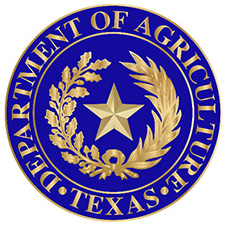USDA allots $300 million for first year of export program
The government will provide up to $300 million for the first year of a new program to build food and ag export sales in nontraditional markets, said Agriculture Secretary Tom Vilsack on Wednesday. The USDA has committed $1.2 billion over five years for the Regional Agricultural Promotion Program (RAPP) after the second year in a row of declining ag exports.
Greenhouse gas emissions from agriculture grew 14 percent in 20 years
Livestock accounted for slightly more than half of the 14 percent increase in global greenhouse gas emissions by agriculture from 2000 to 2021, said a Food and Agriculture Organization report on Wednesday. The carbon footprint of cattle and sheep was several times higher than the footprint for pigs, chickens, and dairy, when calculated per kilogram of product, said the FAO’s Statistical Yearbook, released on the eve of the UN climate summit.
Sioux Chef discusses what it means to run a political restaurant
(AP) Owamni is a political restaurant, one that allows its patrons to believe they are confirmed anti-racist allies. To eat here is to get to be a good person, at least for a time, because what Sean Sherman is doing is a good thing. This kind of politics is not exclusive to Owamni, nor is it necessarily fair to Sherman to view his project in this way. Le Bernardin in New York is a Michelin three-star French restaurant, with a French chef, serving French food, and France, as a nation, is eager to spread its culture, language, and politics around the globe, but particularly in places that were once its colonial possession, if they will allow them. But you would be hard pressed to find anyone trying to understand Eric Ripert’s food primarily as political, although it is every bit as much as Sherman’s.
TODAY’S QUICK HITS
Biggest outbreak in a year: Highly pathogenic avian influenza was confirmed on an egg farm with 1.62 million hens in northwestern Iowa. It is the biggest U.S. outbreak since one on a Nebraska egg farm last November. (USDA)
Costly rural internet: Data submitted to the FCC shows that while rural Americans pay $13 more per month than urban residents for basic internet service, the gap gets smaller when there are at least two providers. (Daily Yonder)
Wolverine threatened: The Interior Department said it would list the North American wolverine, found in mountainous parts of the U.S. Northwest, as a threatened species because of habitat loss, much of it a result of climate change. (U.S. Fish and Wildlife Service)
Water worries in Arizona: There are no regulations on pumping groundwater in rural Arizona, and residents of the state’s McMullen Valley are concerned that heavy water use on alfalfa farms will deplete the supply of drinking water. (Associated Press)
‘Triple dip’ for rice: From 2017 to 2021, rice farmers received more than $3 billion combined from three farm support programs, a total that does not include trade war assistance, said a group that opposes higher crop subsidy spending in the new farm bill. (EWG)











